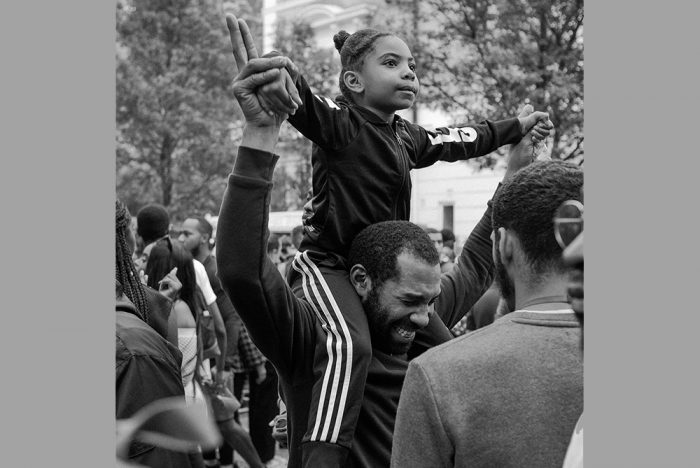DOJ Issues Guidance on Trump Administration’s DEI Policy for Recipients of Federal Funds


The Intensive Model of Therapy for Children With Neurological or Movement Disorders
Thursday, September 4, 2025
12:00 pm – 1:00 pm EDT; 11:00 am – 12:00 pm CDT;
10:00 am – 11:00 am MDT; 9:00 am – 10:00 am PDT
Register Here
Presenter Bio: Amy O’Donnell
Amy O’Donnell is a pediatric physical therapist at The Children’s Institute in Pittsburgh, Pennsylvania. She earned her bachelor’s degree from Washington & Jefferson College and her Doctorate in Physical Therapy from the University of Pittsburgh. Amy joined The Children’s Institute in 2012 and has since specialized in pediatric physical therapy care.
Her first exposure to the intensive therapy model came during her student training, and she became actively involved in the program following its expansion to her clinic location in 2014. In 2019, she was named the program coordinator. Amy has co-authored both qualitative and quantitative research articles on the Intensity Program at The Children’s Institute, with both publications appearing in Pediatric Physical Therapy journal.
Objectives: Following this course, the learner will:
Audience: This webinar is intended for all interested members of the rehabilitation team.
Level: Beginner/Intermediate
Certificate of Attendance: Certificates of attendance are available for all attendees. No CEs are provided for this course.
Complimentary webinars are a benefit of membership in IPRC/RCPA. Registration fee for non-members is $179. Not a member yet? Consider joining today.

If you haven’t yet already made plans, there is still time to organize a meaningful celebration of Juneteenth for your colleagues and staff. Recognizing and honoring the significance of Juneteenth helps foster a culture of belonging within your organization. There are many ways to celebrate — see below for suggestions and ideas.
First, Understand the Background and History: What is Juneteenth?
Juneteenth is a federal holiday observed on June 19 to commemorate the emancipation of African Americans who were enslaved in the United States. It marks the end of slavery and has been celebrated annually since 1865. On June 17, 2021, President Joe Biden signed Senate Bill 475 into law, officially making Juneteenth a federally recognized holiday. Juneteenth is also known by several other names, including National Independence Day, Emancipation Day, Freedom Day, Jubilee Day, Black Independence Day, and Juneteenth Independence Day.
The historical roots of Juneteenth date back to the American Civil War. In early 1863, President Abraham Lincoln issued the Emancipation Proclamation, which declared freedom for more than three million enslaved individuals in the Confederate states. However, it was not until more than two years later — on June 19, 1865 — that this news reached the people of Texas, when Union soldiers arrived to enforce the proclamation. Upon learning of their freedom, African Americans in Texas began to celebrate with prayer, feasting, music, and dance, laying the foundation for what would become Juneteenth.
The first official Juneteenth celebrations took place in Texas on June 19, 1866. Early observances included prayer gatherings, the singing of spirituals, and wearing new clothing to symbolize newfound freedom. In 1980, Texas became the first state to declare Juneteenth an official state holiday. Since then, many other states have followed, and the day has become an annual tradition celebrated across the country.
How is Juneteenth Celebrated?
Today, many Juneteenth celebrations include prayer and religious services, speeches, educational events, family gatherings and picnics, and festivals with music, food, and dancing. In some places, demonstrations and parades commemorate the day. These celebrations often include ways to honor aspects of African American culture.
While Juneteenth has immense meaning for the African American community, there is value for every person, regardless of race, culture or background, to observe this holiday. A celebration of freedom for any group is a celebration of the ideals that we value as a nation. Juneteenth is a day for all Americans to celebrate liberty, resilience, and strength. While participating and commemorating, we acknowledge the historical and somber importance of the day.
Why Should We Celebrate Juneteenth in the Workplace?
Celebrating Juneteenth in the workplace sends a strong message to African American employees, clients, and community members that the black experience, black history, and the struggles endured are worth acknowledging.
What are Some Ideas for Planning a Juneteenth Celebration at Work?
What is Pride Month?
June 1 marked the beginning of (LGBTQIA+) Pride Month, a time to recognize and celebrate LGBTQIA+ individuals in our communities. Pride Month commemorates the 1969 Stonewall Uprising in New York and celebrates the LGBTQ community and the fight for equal rights.
The Stonewall Uprising began on June 28, 1969, when police raided the Stonewall Inn, a prominent gay bar in Manhattan’s Greenwich Village. The protests that followed are credited with a shift in LGBTQ+ activism in the US and is why Pride week is celebrated in June. In many cities across the nation, the celebration is now a month-long series of events.
Today, celebrations include pride parades, picnics, parties, workshops, symposia, and concerts, and LGBTQ Pride Month events attract millions of participants around the world. The purpose of the commemorative month is to recognize the impact that lesbian, gay, bisexual, and transgender individuals have had on history locally, nationally, and internationally.
What does PRIDE Stand for?
“Pride” is not an acronym, but the LGBTQIA+ community comprises several identities related to sexual orientation and gender identity. Here are the definitions to know:
Why Recognize Pride Month at Work?
Celebrating Pride Month is valuable for organizations and teams.
Monday, June 23, 2025
12:00 pm – 1:00 pm EDT; 11:00 am – 12:00 pm CDT;
10:00 am – 11:00 am MDT; 9:00 am – 10:00 am PDT
Register Here
Presenter Bios:
Katherine Bentley, MD
Dr. Bentley is a pediatric physiatrist at Children’s Specialized Hospital. She is the Section Chief of Physiatry, past President of the Medical Staff, Director of the Chronic Pain Program, Director of the Continuing Medical Education Department, and Assistant Director of the Pediatric Rehabilitation Medicine Fellowship.
Dr. Bentley is an associate professor at Rutgers New Jersey Medical School. Dr. Bentley graduated from the Lawrenceville School in 1998 and Middlebury College in 2003. In college, she became an adaptive skiing instructor, which sparked her interest in rehabilitation medicine. Dr. Bentley graduated from New Jersey Medical School in 2007, completed an internship at Morristown Medical Center, and completed both a residency in rehabilitation medicine and fellowship in pediatric rehabilitation medicine at Rutgers New Jersey Medical School. She is also a member of the Women’s Leadership Alliance at RWJBarnabas Health.
Kate Vieni, PT, DPT
Kate Vieni is a pediatric physical therapist at Children’s Specialized Hospital. She works as the supervisor of the inpatient physical therapy department and is the program lead for physical therapy within the chronic pain management program. Kate graduated from Ithaca College with her doctorate in physical therapy in 2006. She received her therapeutic pain specialist certification in 2022 and her fellowship of pain sciences in 2024 through Evidence of Motion.
Kate Hottinger, PhD
Kate Hottinger is a licensed pediatric psychologist and works as the inpatient therapy supervisor for the psychology department at Children’s Specialized Hospital in New Brunswick, NJ. She obtained her graduate training from Ferkauf Graduate School of Psychology. She completed fellowship training in Pediatric Pain Medicine and internship training in Child Clinical Psychology at Children’s National Medical Center in Washington, DC.
Objectives: Following this course, the learner will:
Audience: This webinar is intended for all interested members of the rehabilitation team.
Level: Beginner – Intermediate
Certificate of Attendance: Certificates of attendance are available for all attendees. No CEs are provided for this course.
Complimentary webinars are a benefit of membership in IPRC/RCPA. Registration fee for non-members is $179. Not a member yet? Consider joining today.
Treating Functional Neurologic Disorder (FND) — “Not Your Parent’s Functional Neurologic Disorder”
Tuesday, May 20, 2025
1:00 pm – 2:00 pm EDT; 12:00 pm – 1:00 pm CDT;
11:00 am – 12:00 pm MDT; 10:00 am – 11:00 am PDT
Register Here
Presenter Bios:
Samuel Zachary, MOT, OTR/L
Sam is an occupational therapist at Children’s Hospital of Philadelphia (CHOP) in the inpatient rehabilitation and amplified musculoskeletal pain syndrome (AMPS) programs. Sam brings experience from a variety of medical-based pediatric settings, including acute care, in-patient rehabilitation, and multi-disciplinary outpatient clinics.
Over the past four years, Sam’s practice has focused on the AMPS Intensive Program and Clinic at CHOP. He is passionate about treating children and adolescents with AMPS, functional neurological disorder, or both. He brings great enthusiasm while sharing his knowledge and best practices for caring for this unique population.
Lori Kile, PTA
Lori is a physical therapist assistant at Children’s Hospital of Philadelphia (CHOP) working in the inpatient rehabilitation and amplified musculoskeletal pain syndrome (AMPS) programs. She began her career at CHOP in 1998 and has dedicated over 25 years of service to the institution. She worked in a variety of pediatric settings, including outpatient, acute care, and inpatient rehab, prior to finding her passion for treating youth and teens with Amplified Musculoskeletal Pain and Functional Neurological Disorder. Lori now specializes with these populations; she is also involved with the International FND society, where she helps to develop deliverables and build the knowledge base regarding the diagnosis. She loves to share her knowledge and lessons learned to build the skills of others and promote best practices in treatment of patients with FND.
Objectives: Following this course, the learner will:
Audience: This webinar is intended for all interested members of the rehabilitation team.
Level: Beginner
Certificate of Attendance: Certificates of attendance are available for all attendees. No CEs are provided for this course.
Complimentary webinars are a benefit of membership in IPRC/RCPA. Registration fee for non-members is $179. Not a member yet? Consider joining today.
Treating Functional Neurologic Disorder (FND) — “Not Your Parent’s Functional Neurologic Disorder”
Tuesday, May 20, 2025
1:00 pm – 2:00 pm EDT; 12:00 pm – 1:00 pm CDT;
11:00 am – 12:00 pm MDT; 10:00 am – 11:00 am PDT
Register Here
Presenter Bios:
Samuel Zachary, MOT, OTR/L
Sam is an occupational therapist at Children’s Hospital of Philadelphia (CHOP) in the inpatient rehabilitation and amplified musculoskeletal pain syndrome (AMPS) programs. Sam brings experience from a variety of medical-based pediatric settings, including acute care, in-patient rehabilitation, and multi-disciplinary outpatient clinics.
Over the past four years, Sam’s practice has focused on the AMPS Intensive Program and Clinic at CHOP. He is passionate about treating children and adolescents with AMPS, functional neurological disorder, or both. He brings great enthusiasm while sharing his knowledge and best practices for caring for this unique population.
Lori Kile, PTA
Lori is a physical therapist assistant at Children’s Hospital of Philadelphia (CHOP) working in the inpatient rehabilitation and amplified musculoskeletal pain syndrome (AMPS) programs. She began her career at CHOP in 1998 and has dedicated over 25 years of service to the institution. She worked in a variety of pediatric settings, including outpatient, acute care, and inpatient rehab, prior to finding her passion for treating youth and teens with Amplified Musculoskeletal Pain and Functional Neurological Disorder. Lori now specializes with these populations; she is also involved with the International FND society, where she helps to develop deliverables and build the knowledge base regarding the diagnosis. She loves to share her knowledge and lessons learned to build the skills of others and promote best practices in treatment of patients with FND.
Objectives: Following this course, the learner will:
Audience: This webinar is intended for all interested members of the rehabilitation team.
Level: Beginner
Certificate of Attendance: Certificates of attendance are available for all attendees. No CEs are provided for this course.
Complimentary webinars are a benefit of membership in IPRC/RCPA. Registration fee for non-members is $179. Not a member yet? Consider joining today.
Part 1: Motivational Interviewing in Pediatric Therapy
Tuesday, April 15, 2025
11:00 am – 12:00 pm EDT; 10:00 am – 11:00 am CDT;
9:00 am – 10:00 am MDT; 8:00 am – 9:00 am PDT
Register Here
Part 2: Beyond Motivational Interviewing: Additional Strategies to Improve Engagement in Pediatric Therapy
Tuesday, April 22, 2025
11:00 am – 12:00 pm EDT; 10:00 am – 11:00 am CDT;
9:00 am – 10:00 am MDT; 8:00 am – 9:00 am PDT
Register Here
Presenter Bios:
Alison Heinekamp, MOT, OTR/L, CBIS
Alison Heinekamp is an Occupational Therapist and certified brain injury specialist. She currently works as an inpatient occupational therapist at Cincinnati Children’s Hospital Medical Center practicing in the areas of neurology/neurosurgery and pulmonology. Ali serves on the disorders of consciousness subcommittee of the Ohio Brain Injury Program. She has presented both locally and nationally on topics related to best occupational therapy practices in pediatric brain injury and motivational interviewing in pediatrics.
Heather Blackburn, PT, MPT, CBIS
Heather Blackburn is a pediatric physical therapist who specializes in neuro-rehabilitation, serial casting, and treating children with cerebral palsy and acquired brain injuries. She has presented at OPTA, OPC, Ohio Brain Injury Association, APTA Peds Annual Conference, and AACPDM Annual Conferences on her evidence-based practice work in the areas of serial casting, pediatric brain injury treatment, and aquatic therapy. She is a Certified Brain Injury Specialist and the leader of the Moderate-Severe Brain Injury Translational Research and Clinical Knowledge Team at Cincinnati Children’s Hospital Medical Center. Heather holds a Masters in Physical Therapy from Ohio University and was LEND (Leadership Education in Neurodevelopmental and Related Disabilities) certified through Ohio State University.
Objectives: Following this course, the learner will be able to:
PART 1
PART 2
Audience: This webinar series is intended for all interested members of the rehabilitation team.
Level: Beginner-Intermediate
Certificate of Attendance: Certificates of attendance are available for all attendees. No CEs are provided for this course.
Complimentary webinars are a benefit of membership in IPRC/RCPA. Registration fee for non-members is $179. Not a member yet? Consider joining today.

CARF International requests feedback on their newly released standards for disorders of consciousness. These standards were created with input from the field, and CARF is interested in feedback from providers and other stakeholders. You are invited to share within your network including with families/caregivers and those with lived experience.
Questions can be directed to:
Terrence Carolan, MSPT, MBA
Managing Director | Medical Rehabilitation and Aging Services
CARF International
Monday, March 24, 2025
12:00 pm – 1:00 pm EDT; 11:00 am – 12:00 pm CDT;
10:00 am – 11:00 am MDT; 9:00 am – 10:00 am PDT
Register Here
Sara Kerrick, PT, C/NDT
Presenter Bio:
Sara Kerrick brings over 40 years of clinical experience in physical therapy. She is a Board-Certified Clinical Specialist in Pediatric Physical Therapy and is also Certified in Neurodevelopmental Treatment (C/NDT). Sara joined the Mary Bridge Children’s Therapy Services Team (Puyallup, Washington) nearly 37 years ago and currently serves as the Clinical Education Coordinator.
Sara received her Physical Therapy degree from Northern Arizona University and her Masters in Pediatric Rehabilitation with an emphasis on pediatrics from the University of Washington. She has a strong interest in education and has taught courses related to neurodevelopmental treatment and the use of pediatric outcome measures. Sara has a vested interest in evidence- based practices, combining her experience as a clinician and her love of research.
Objectives: At the end of this session, the learner will:
Audience: This webinar is intended for all interested members of the rehabilitation team.
Level: Beginner
Certificate of Attendance: Certificates of attendance are available for all attendees. No CEs are provided for this course.
Complimentary webinars are a benefit of membership in IPRC/RCPA. Registration fee for non-members is $179. Not a member yet? Consider joining today.